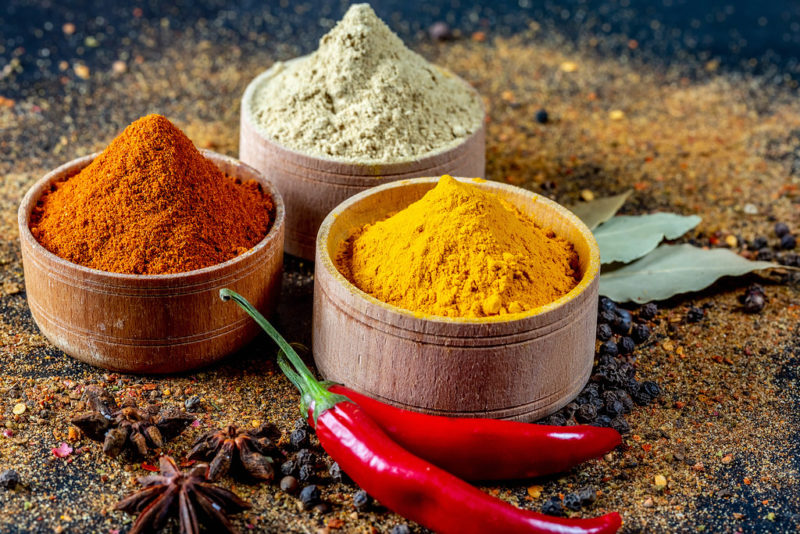“Variety is the spice of life,” is an expression that’s always felt like wearing a shirt made of hair to me every time I hear it. Variety is essential for a colourful existence, but did we have to compare it to spice?
The saying gets to me because spice can be more than just variety. If mankind didn’t have eventual access to spices as a species, I think we would have been extinct – and not bored.
As an experiment, try cooking sans spices for the next meal you make. I don’t mean reduced salt, but zero (and no, the ingredients are not allowed to contain added salt as it would be cheating the experiment!).
If it’s from a restaurant, just ask the chef to withhold all forms of creativity (and salt) because a bridge column said so.
You’ll notice that the result is utterly terrible.
That’s the difference that spices will make.
What does that have to do with bridge?
Well…
Spices… & bridge?
Spices aren’t just there for the inclusion of flavour, although that’s one of their purposes. The merit of spice includes their overall health benefits, too.
That right there is where they can link up to your bridge game. Health has a direct impact on how well you’re able to concentrate; without complicating things, vitamins, blood flow, all these things matter to your game.
Speaking of spices and bridge games, an overload is a bad idea. Bridge is a table game, and stomach upsets don’t mix well with sitting stone-faced and surrounded by others.
Including spices (for better bridge)

Include spices for better bridge. Exclude spices based on taste, tolerance, and health reasons.
Tolerance is not the same for everyone. While some people can tolerate chilli, salt, or mustard just fine, others cannot. You’ll know who you are while reading this.
If you have never experimented with spices before, an allergy test is highly recommended. Allergies are dangerous, and one might be allergic to a hundred-and-one things without knowing it yet.
All spices should be consumed in moderation. From salt to pepper, over-consumption can do harm. There are plenty of health books and articles online that can tell you why.
With conditions like high or low blood pressure, take more caution with spices and see a dietary expert or doctor first.
Now what?
Spices can be a learning curve.
It takes some time to figure out what works fresh versus dried, or ground versus whole. It might even take some time to figure out what you like, and what just doesn’t belong near your kitchen.
Mixed together, you can discover flavours that you never thought you would. Hint: Not all of them are going to be good. Expect experimentation.
What’s good for bridge?
Pepper aids blood flow, but that’s not the only reason why it makes a good accompaniment to your food. Oils found in pepper are also useful as an anti-inflammatory compound, and particularly useful for arthritis.
Turmeric improves the immune system and makes an excellent general boost. Add in moderation, and make sure you don’t spill it on anything you wouldn’t like to dye yellow. It’s full of good stuff, but stains, and stains almost anything.
Cinnamon is another great anti-inflammatory spice. While it seems appropriate for desserts, many other dishes incorporate its use either whole or ground. Use for a general mental boost, and consume for its anti-inflammatory and immunity benefits.
Cloves counts as a spice that’s not to everyone’s taste. When added whole to foods, use with care; cloves are hard-to-find and simultaneously hard enough to crack teeth. Cloves (and by extension, also clove oil) can be used as a mild topical anaesthetic if toothache is distracting you from bridge.
Did you imagine that spices can have anything to do with your performance at the table? Which ones might you include for sharper bidding or better immunity?

Comments
One response to “The spice (of bridge)”
What are you even trying to say? Dealing with a toothache? Immunity? It’s pretty clear you don’t know anything about bridge or spices.